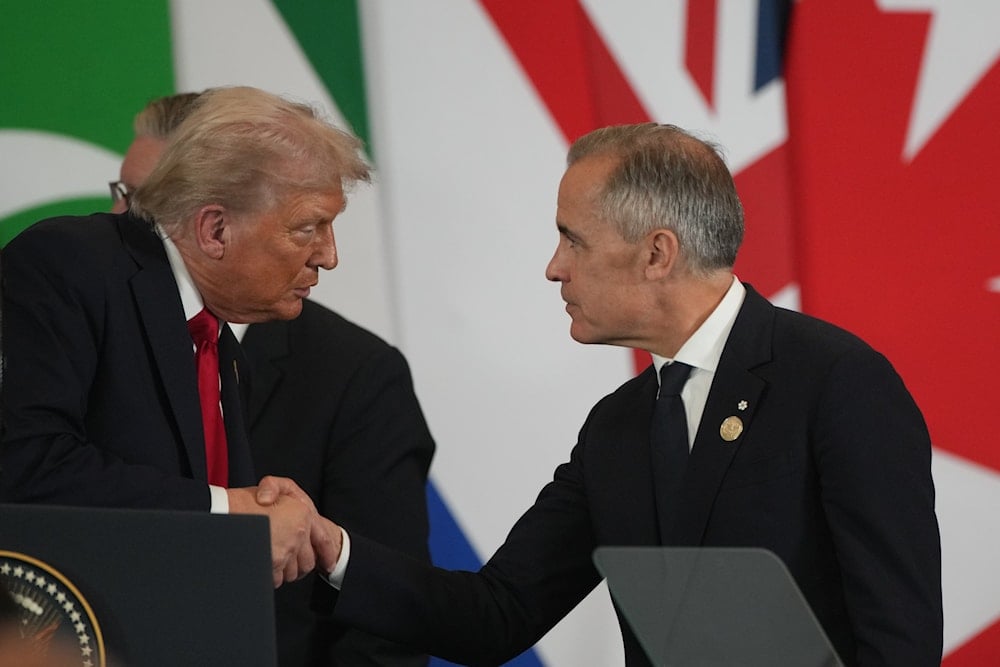Reagan ad fallout: Carney apologizes to Trump over trade rift
The Canadian prime minister’s apology to Trump ends a brief diplomatic rift sparked by an Ontario ad using Ronald Reagan’s image to criticize US tariffs.
-

US President Donald Trump, left, shares a moment with Canada's Prime Minister Mark Carney during a summit, Monday, Oct. 13, 2025, in Sharm el-Sheikh, Egypt (AP)
Canadian Prime Minister Mark Carney has said he apologized to US President Donald Trump over a controversial anti-tariff advertisement that used a clip of former US president Ronald Reagan to criticize trade barriers.
“I did apologize to the president. The President was offended,” Carney told reporters on Saturday in the South Korean city of Gyeongju, adding that trade discussions between the two countries would resume when Washington is "ready".
Trump, speaking to journalists aboard Air Force One on Friday, confirmed receiving the apology, describing his relationship with Carney as "very good".
“I have a very good relationship [with Carney]. I like him a lot, but what they did was wrong. He was very nice. He apologized for what they did with the commercial,” Trump said.
The president’s remarks marked the first time both leaders publicly acknowledged the diplomatic rift caused by the advertisement.
Reagan Foundation’s criticism, fallout
The dispute traces back to an Ontario government ad that aired earlier this month, featuring Reagan’s remarks to underscore opposition to tariffs.
Days after it was broadcast, the Ronald Reagan Presidential Foundation and Institute criticized the campaign on social media, calling the use of Reagan’s image "inappropriate".
In response, Trump abruptly halted trade negotiations with Canada, accusing the ad’s creators of deception and branding it "FAKE".
Ontario’s role and renewed tensions
Ontario Premier Doug Ford eventually agreed to suspend the ad campaign, but only after it aired again during the World Series.
The controversy highlighted lingering tensions over trade messaging between Washington and Ottawa, even as both sides sought to restart discussions following months of stalled talks. Earlier this week, Trump reiterated that an apology had been made, though he did not specify by whom. “They’ve apologized,” he told reporters on Monday.
Wider context
Carney’s apology underscores the uneasy reality of Canada’s trade diplomacy with Washington, where symbolic gestures and American sensitivities often outweigh substantive policy discussions.
The episode exposes how domestic expressions of national confidence can provoke disproportionate reactions from a US administration quick to weaponize offense for political leverage.
Trump’s abrupt retaliation and Carney’s measured response highlight the asymmetric nature of the relationship, one in which Canada is often forced into damage control to preserve dialogue.
Beneath the diplomatic civility lies a deeper imbalance: Ottawa’s economic outreach remains tethered to the temperament of a White House that treats negotiation as coercion, using trade as an instrument of dominance rather than cooperation.

 3 Min Read
3 Min Read










